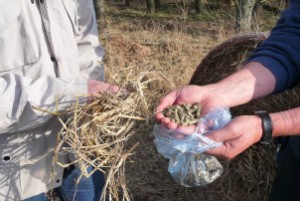The State University of New York College of Agriculture and Technology at Cobleskill (SUNY Cobleskill) has received a US$5.8 million grant from the California Department of Forestry and Fire Protection (CAL FIRE) to develop and deploy a mobile woody biomass conversion unit that will complement the state’s efforts to reduce wildfires. Source: Timberbiz
SUNY Cobleskill Visiting Research Assistant Professor David Waage will lead the project.
The unit, which processes approximately a ton an hour and generates biofuels, biopower and biochar, incorporates Waage’s inclined rotary gasifier technology.
Waage’s initial research was funded by the Department of Defense’s Strategic Environmental Research and Development Program (SERDP).
In 2018, SUNY Cobleskill received a US$1.6 million Environmental Security Technology Certification Program (ESTCP) grant from the same agency, to build and demonstrate a fully automated, portable rotary gasifier waste-to-energy system at a domestic military base.
A key advantage of this technology is that it is mobile and can be easily deployed to the biomass site. The United States Patent and Trademark Office (USPTO) examined the application for the SUNY gasifier technology and the patent has been allowed.
“The invention and development of the rotary gasifier right here on our campus encapsulates SUNY Cobleskill’s mission to grow, to sustain, and to renew our world and its citizens,” said SUNY Cobleskill President Marion Terenzio.
“We are proud of Professor David Waage for imagining the possibilities of a cleaner, more sustainable world, and taking action to develop this advanced technology with enormous potential. We extend our gratitude to SUNY Research Foundation for shepherding the project and are excited to embark on the next phase of collaboration with Caribou Biofuels in support California’s efforts to reduce wildfires.”
There is tremendous potential for the gasifier in domestic and community use. From almost any combustible material it produces both gaseous and liquid fuels. The machine built at SUNY Cobleskill can produce 60 kilowatts of power a day from approximately two tons of feedstock, enough to power about 50 standard American homes.






